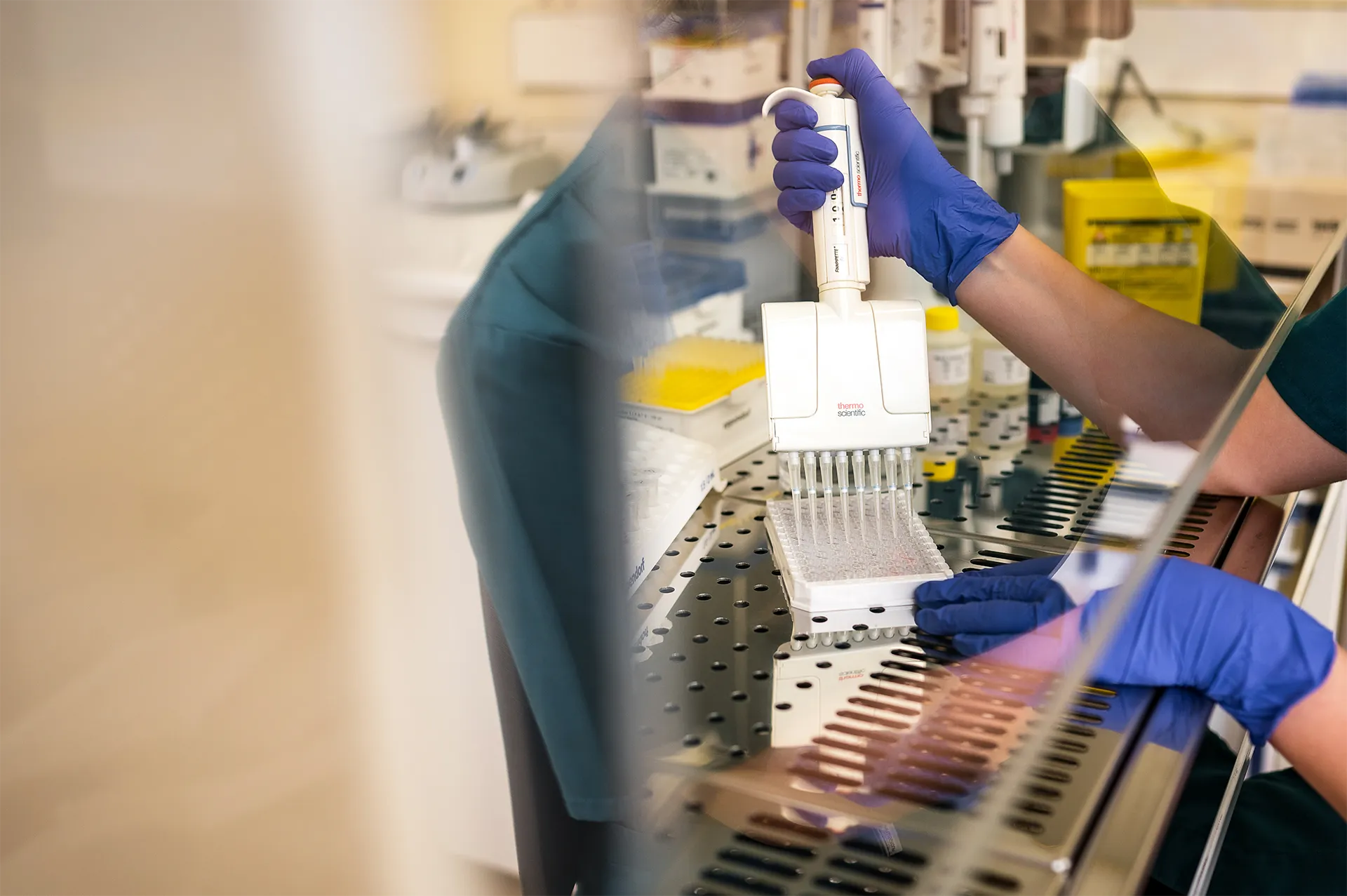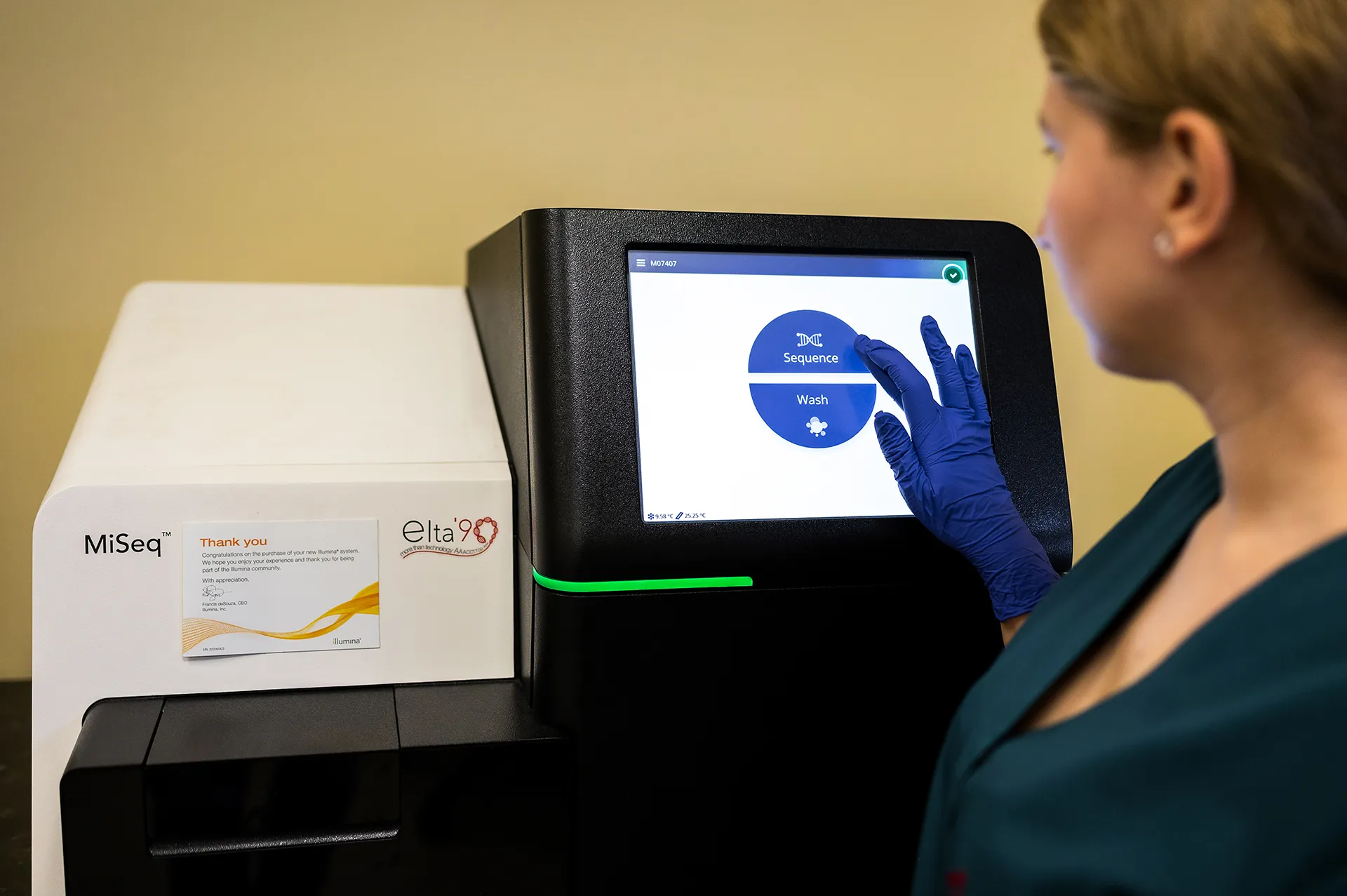Genetic screening tests
Genetic testing can reveal changes in the genetic make-up that predispose to disease or that underlie an existing disease.
These tests are often used in family planning, pregnancy, hereditary diseases in the family and other diseases (such as tumors). Genetic testing is done to see if there are certain changes in the genome from what it should normally be. The difference does not necessarily mean that a disease will develop, in many cases a pathogenic mutation can only predispose to it, and often other conditions are required for the genetic variation or mutation to have an effect. The results of a genetic test should always be evaluated by an expert doctor! At Pro Medical Center we can also offer genetic consultations!
What are genetic tests for?
- to diagnose a disease or an increased risk of disease
- to check whether a gene that causes an inherited disease is present in a particular family member, increasing the risk of developing that disease
Who is this genetic test recommended for?
- In the case of family planning, the father and mother can be tested to see if they are carriers of the defective gene and could pass it on to their child (for example, cystic fibrosis, sickle cell anemia, etc.).
- for the purpose of diagnosing the person showing symptoms (eg, Huntington’s disease, Alzheimer’s disease, Turner syndrome, etc.)
- as a preventive measure in healthy people with a family history of disease caused by a genetic defect (eg BRCA mutation in breast cancer in those who have not yet developed the disease)
- in special cases where a person has been exposed to radiation or chemicals that can cause a genetic mutation – but special sampling is required.
- Those who have a family history with cumulative antecedents e.g. cancer, cardiovascular disease, thrombosis, diabetes, etc.
- People who are planning a family and want to rule out hereditary diseases, possible chromosomal abnormalities, especially if there is a family history of genetic diseases.
As a general rule, the clinical exome test only needs to be done once in a lifetime, and when we do it is an individual choice. If there are known diseases in the family, it is recommended that young children also get the appropriate test so that we can really focus on prevention!
Do not forget that, in most cases, it is not the disease itself that is detected, but the predisposition to it! Therefore, it is not at all certain that a predisposition to the detected disease means that you will get sick. However, in addition to genetics, lifestyle and environmental influences also have a large influence, so a genetic mutation that predisposes to a heart attack can be fatal if we do not take proper care of ourselves. The appearance of the disease can be hastened by an inappropriate lifestyle: smoking, stress, consumption of inappropriate food, etc., but with the right attitude we can reduce the chances of the appearance of the disease or mitigate its effects. Interpretation of genetic tests is always the responsibility of a medical specialist. In the laboratory, the genetic results obtained will be interpreted, but any treatment, remedy or other recommendation is the sole responsibility of a specialist. Only a geneticist or your doctor is authorized to do this!
At the Pro Medical clinic we can offer you a genetic consultation if necessary! Our specialist in medical genetics is Prof. Dr. Vulturar Romana.
Did you know that at birth you already have a set of DNA that contains the hereditary information that determines your eye or hair color?
The genetic diagnostic test is the only screening test that can detect traits encoded in human genetic material. From the moment of conception, much of our DNA remains unchanged throughout our lives. Because the genetic material of the person being tested changes negligibly during their lifetime, a particular genetic test only needs to be done once.
The importance of testing is that we can test for these genes before disease occurs. However, it is known that genetic screening can only confirm a predisposition to the disease, which is NOT the same as the disease itself.
For example: a healthy woman goes for a genetic test to find out if she carries a known genetic mutation responsible for cancer. This is especially important for women with a family history of breast cancer, for example. It is also possible to read a predisposition to disease from DNA. For example, if a woman is prone to blood clots, she should not take birth control pills.
The equipment needed to read DNA is very expensive, and the tools to detect mutations are also very expensive. Knowing the results will help the patient pay more attention to prevention and stricter control of the condition. To perform a genetic diagnostic test, the patient must sign an informed consent before the sample is taken. The sample is usually venous blood, but can also be other human material (for example paraffin-embedded tissue).
The TruSight One sequencing panel we use
The TruSight One sequencing panel provides comprehensive coverage of over 4,800 disease-related genes that are associated with the most common conditions. We mention some of them:
- Predisposition to diabetes
- Predisposition to hypertension
- High risk of diabetes
- Cancer risk
- Leukemia, breast cancer, ovarian cancer, lung cancer, colon cancer or prostate cancer, etc.
- Genetic risk of inflammatory bowel disease
- Susceptibility to Alzheimer’s disease
- Susceptibility to Parkinson’s disease
- Iron absorption / Hemochromatosis
- Hypertension
- The Leiden mutation
- Sensitivity to milk sugar (lactose)
For more information, please contact us at fejerszilard@provitam.com


